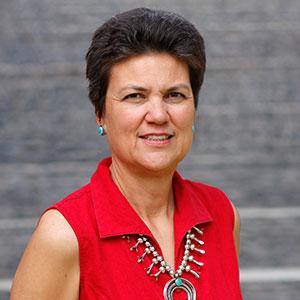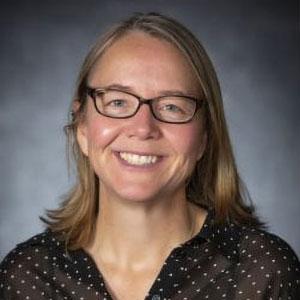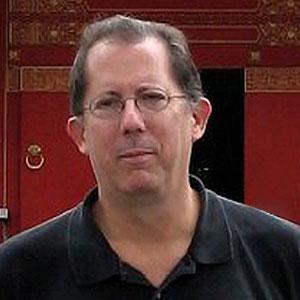Environmental Health Studies on Navajo Lands

WHEN
Thursday, November 5, 2020
11:00 a.m. - 12:00 p.m.
LOCATION
Online
PRICE
Free
A Speaker Series
Toxicology and Societies: The Impacts of Chemicals in Our Lives
November 5, 2020 at 11 a.m. PST
Brought to you in partnership with Huxley's Environmental Toxicology department and the WWU Alumni Association
Check out this video to watch the Environmental Health Studies on Navajo Lands.
Please join us for the second speaker in our series on Toxicology and Societies: The Impacts of Chemicals in our Lives.
Jani Ingram is a professor of Chemistry and Biochemistry at Northern Arizona University and a member of the Navajo Nation. She will present her work on the metal contamination that resulted from Cold War-era uranium mines on the Navajo reservation. Please join us for her talk: "Environmental Health Studies on Navajo Lands."
Our vision in developing this series was to support a better understanding of something that affects all of us. There are over 300,000 chemicals being produced and used in almost everything we wear, eat, and drink. How can you ever hope to understand when and where you or your family might be at risk from some of these chemicals? The short answer is, you can’t know everything about all of these substances, but you can learn more about how toxicology (the study of toxic substances) affects you and your society.
This seminar series aims to help you better appreciate, understand, and evaluate the many ways that manufactured chemicals interact with all humans on Earth.

Dr. Jani C. Ingram
Speaker
Jani C. Ingram, PhD, investigates environmental contaminants with respect to their impact on health. A major part of her research is focused on characterizing uranium and arsenic contamination in water, soil, plants and livestock. A critical aspect of her research is to foster collaborations with the Native American community and leaders to build trust, obtain access to field samples and gain insights into their health concerns. Recruiting Native American students to work with her as a Navajo principal investigator on the project and building an interdisciplinary, collaborative team of scientists with expertise in analytical chemistry, geoscience, cancer biology, and social sciences are also important to her research. She is a member of the Navajo Nation (born to the Náneesht’ ézhi clan) and is involved in outreach activities for Native American students in undergraduate and graduate research. She is the principal investigator of the Partnership for Native American Cancer Prevention and the director of the Bridges to Baccalaureate program. She was named the 2018 recipient of the American Chemical Society Award for Encouraging Disadvantaged Students into Careers in the Chemical Sciences. She received an associate degree from Yavapai College, a bachelor of science degree in chemistry from New Mexico State University, and a doctoral degree in chemistry from the University of Arizona. She was a staff scientist at the Idaho National Laboratory for twelve years before joining the faculty at Northern Arizona University.

Ruth Sofield
Co-host
Ruth Sofield is a Professor of environmental toxicology and chemistry in the Huxley College of the Environment. She received her Ph.D. and M.S. in Environmental Science and Engineering at the Colorado School of Mines. Ruth’s research group focuses on the effects of water and air pollution. Their current projects include the aquatic toxicity of microplastic and tire wear particles, and the use of moss as a biomonitoring tool for particulate matter. Ruth is a member of the Puget Sound Partnership Science Panel and the President of the Pacific Northwest Society of Environmental Toxicology and Chemistry.

Tracy Collier
Co-host
Tracy Collier received his Ph.D. in Fisheries Sciences from the University of Washington. He has worked for over 45 years as a toxicologist, with more than 35 of those years spent at NOAA’s Northwest Fisheries Science Center, where he served as the director of a science division that employed up to 100 people, covering several disciplines, including environmental toxicology, analytical chemistry, harmful algal blooms, and watershed processes. He has over 175 scientific publications, and currently is an affiliate faculty at Western.
Upcoming Talks
November 19
Talk: Microplastic Pollution
Speaker: Peter Ross, Coastal Ocean Research Institute
December 3
Talk: Contaminants of Concern for Human and Environmental Health
Speaker: Nancy Denslow, University of Florida, Center for Environmental and Human Toxicology & Department of Physiological Sciences
QUESTIONS
Contact the WWU Alumni Association for this event. Feel free to call at 360.650.3353 or email at alumni@wwu.edu if you have any questions or comments. WWU is an equal opportunity institution. For disability accommodation, please contact the WWU Alumni Association.